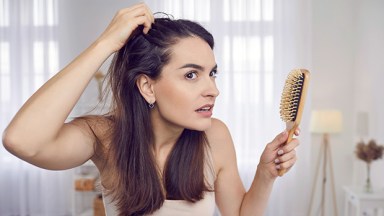
If you’re starting to notice flakes of skin on your scalp, then you may be dealing with either a dry scalp or dandruff. While the two may sound similar, they can be a bit different, and the treatments for each can also be unique.
In this post, we’ll discuss the difference between dry scalp and dandruff so you can identify which one you’re dealing with and what the necessary steps are for treating it. Plus, we’ll walk you through the signs and symptoms off each condition and provide a few tips on how to make your scalp healthier and less susceptible to either issue. With the help of our little guide, you should be be able to get your scalp back to normal and feel healthier and happier.
What Is Dry Scalp?
A dry scalp is a condition where the skin is dehydrated and lacks oil and moisture. This can lead to irritation, redness, flaking, and itching on the scalp.
The skin on your scalp contains natural moisturizing oils called sebum. When these oils are insufficiently produced, your scalp can become dry and irritated. Common causes of a dry scalp include using unhygienic hair products, over-styling, exposure to harsh weather conditions such as cold temperatures or wind, shampooing too often, or using a shampoo that does not suit your skin and hair type.
What Is Dandruff?
Dandruff is a flaky, scaly skin disorder that originates from overactive sebaceous glands producing too much oil and dead skin cells. They will then accumulate on the scalp and produce flakes. It’s usually caused by yeast-like fungi living on the scalp which feed off oil from the sebaceous glands creating an inflamed reaction that leads to excessive shedding of dead skin cells. Other common causes of dandruff can include stress, not washing your hair often enough, or seborrheic dermatitis (eczema on oily parts of the body).
How To Tell the Difference Between Dry Scalp and Dandruff
The primary symptom of a dry scalp is flaking but it differs from the flakes caused by dandruff in color, texture, and smell. Dry scalp flakes tend to look lighter in color, while dandruff flakes can be yellowish-white or oily in appearance. The flakes are usually smaller than those associated with dandruff as well and don’t have much of an odor either.
If you’re not completely sure you can talk to your primary care provider or dermatologist to get a proper diagnosis.
Strategies for Treatment
Once you determine what type of scalp issue you are dealing with, you can begin looking at potential solutions for treatment.
In cases of having a dry scalp, an easy solution would be to switch to shampoos that are free of harsh ingredients like sulfates and heavy fragrances. Other solutions include oil treatments, taking colder showers, or scalp exfoliators. Additionally incorporating the best hair moisturizers, such as leave-in conditioners into your regular hair routine can help replenish lost moisture to your parched strands of hair.
For those with dandruff, medical shampoos which contain ingredients like zinc pyrithione or ketoconazole are usually very effective in relieving symptoms. They can also help to prevent further outbreaks from occurring since these products fight against the yeast-like fungus that causes dandruff in the first place. If your dandruff seems to be due to an oily scalp, washing your hair more often can help as well.
Conclusion
Dry scalp and dandruff can have similar signs and symptoms, so it’s important to be able to distinguish between the two conditions. Knowing the cause of your scalp woes can help you take the right steps to improve the health of your scalp and prevent further irritation or outbreaks. Of course, be sure to discuss your concerns and symptoms with your medical providers to create an effective treatment plan and understand your diagnosis a little better — your scalp will thank you!